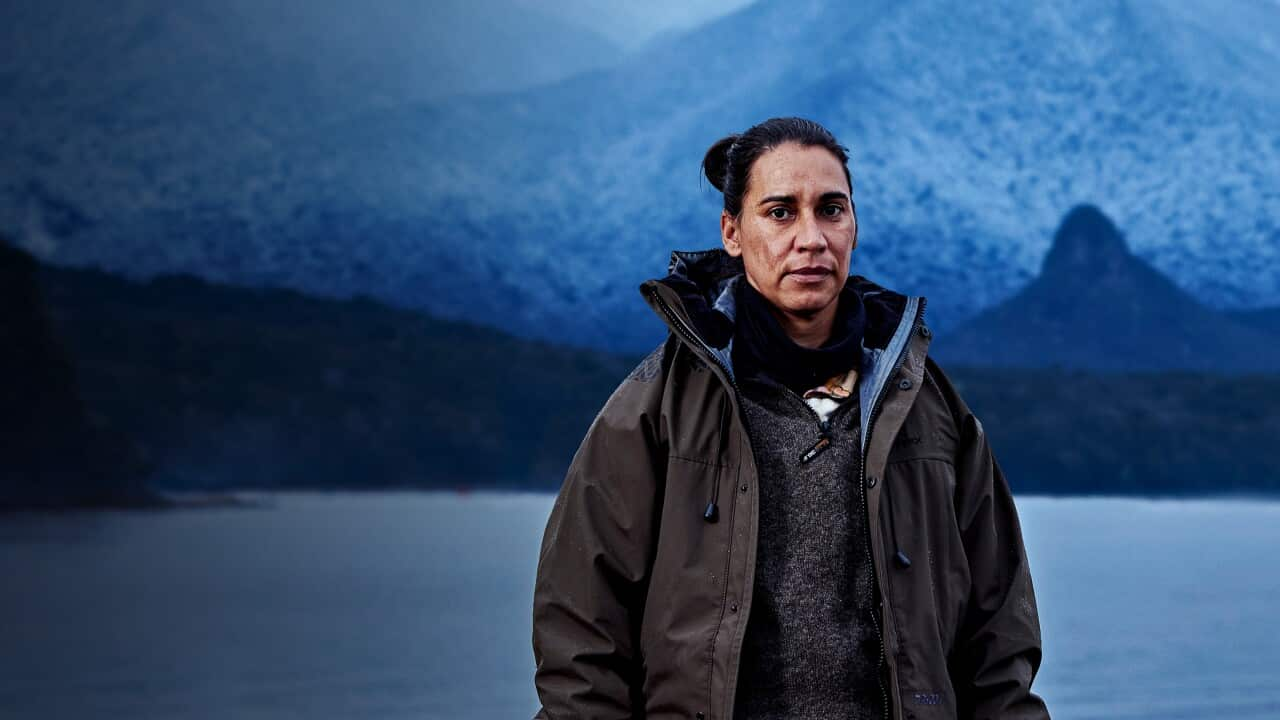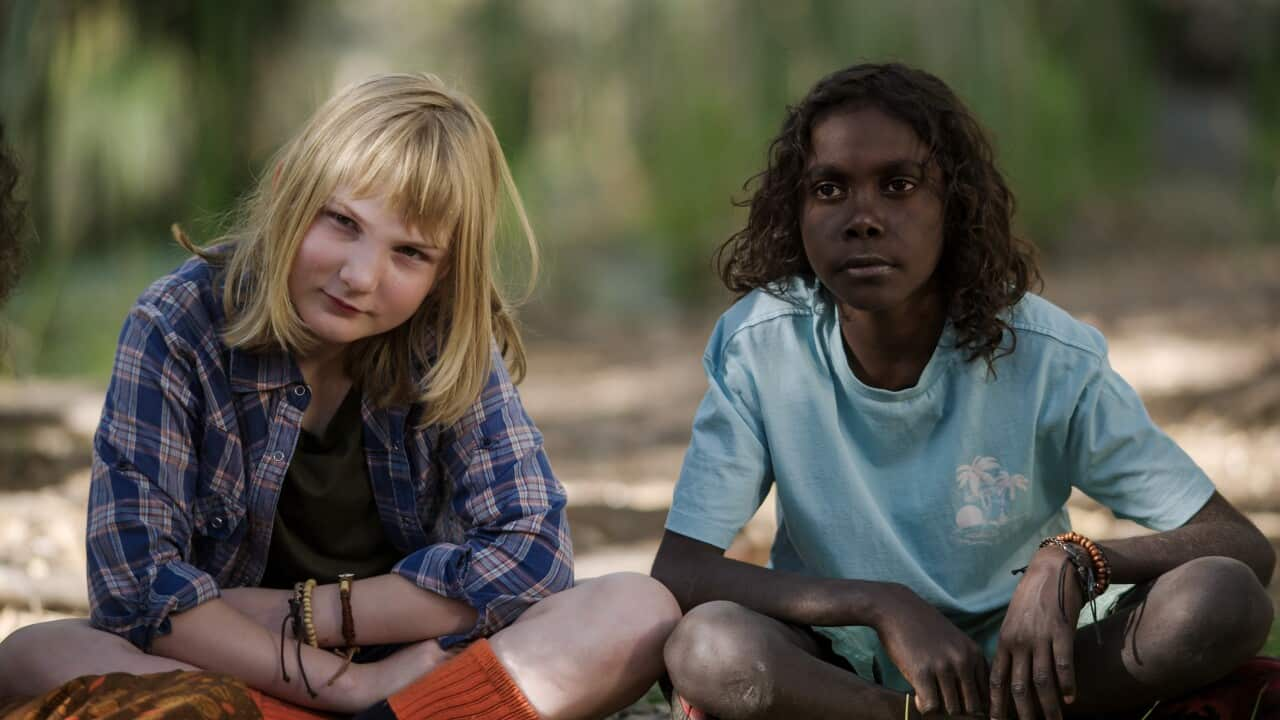Some people might consider having their last prospective contact with humanity for the near future, and being left in the wilderness, as a frightening thought.
Then there are people like Leanne.
"Honestly, the moment the production crew left was an opportunity for a long-awaited exhale," the Barkandji woman tells NITV.
"Before you even get dropped in the bush, you have an intense week of boot camp where you learn all the rules ... so it’s finally a chance to breathe and take in your surroundings."
The 41-year-old is a contestant on Season 2 of 'Alone Australia', the smash SBS version of the popular global series that drops contestants into the wilderness to fend for themselves.
Pitted against the elements, participants nominate their own time of exit, with no idea of whether other contestants have already left. The last person standing wins.
The series, premiering on Wednesday 27 March at 7.30pm on SBS and SBS On Demand, has relocated from Season 1's Tasmanian back-drop to the dramatic vistas of Aotearoa's South Island.

The full cast of Season 2 of 'Alone Australia', which sees contestants isolated from each other, and the rest of the world, to survive in nature.
"On my way to the drop-off point, I saw landslides from the top of a mountain to the bottom, probably caused by an earthquake," she says.
"That was stuff I hadn’t considered beforehand. After witnessing that, I was worried about my safety in a place that was unfamiliar."
Growing up On Country
While that rugged, mountainous landscape was unknown, being outdoors and amongst nature is something Leanne is very comfortable with.
A childhood spent by the banks of the Barka (Darling River) living her Barkandji culture is a source of pride.
"I was lucky to have spent most of my childhood in my grandmother’s Country with my dad’s family," says Leanne.
"They grew up living on Stations. Every chance Dad had he would go bush, and I was that kid that was always eager to follow.
"I remember [he] would dig a heap of grubs and have them sitting in a piece of bark to use for fishing, and as a kid I didn’t have a lot of patience for fishing. Instead we’d be taking Dad’s grubs and cooking them in the coals to eat.
"Geez he’d get cranky! He'd much rather catch a big fish to eat than a small grub."
The fight to survive
It might be a sentiment she has more sympathy for following her experience in the wild.
Hunger is one of the chief obstacles contestants face: foraging for food is utterly dependent on their ingenuity and will, as are all their other survival needs.
Despite her upbringing, and her current work as a World Heritage Aboriginal Programs Officer in Victoria, being dropped into a landscape so foreign to her experience was a challenge for Leanne.
"Of course, I was nervous to be in a Country that was totally opposite to what I’m used to," she says.
Aside from fish, I had no idea what else I would be able to eat.
"[It was] so wet and sodden. The sandflies were something else. I thank my lucky stars for the smoke from the fire each night, as that was the only time I had some relief.
There were other, less earthly concerns as well.
"As a spiritual person like so many other First Nations people, I was feeling cautious and scared. I was apprehensive about accidentally showing disrespect in any way through my actions.
"In saying that, the day before being dropped I had the privilege of spending time at the marae of the local Māori community, who graciously welcomed us to their lands.
"Culturally it made me feel more at ease, although I still made sure I had a fire at night, just as a precaution against any spirits that might have been around!"












